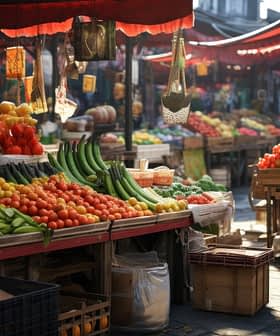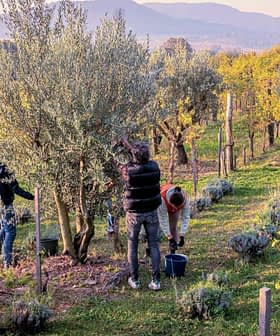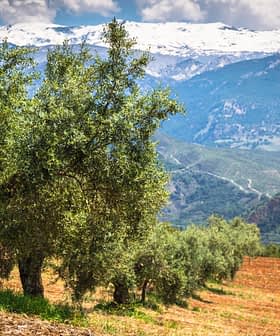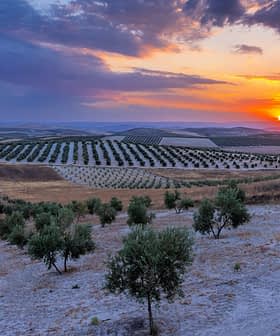Olive Oil Consumption Falling Among Spain's Youth
A new report released by a Spanish university indicated that a number of factors are contributing to the decrease in local consumption and predicted that it may not recover.
A report from the EAE Business School in Madrid shows that olive oil consumption among young people in Spain has been declining due to changes in habits and rising prices since the financial crisis, with prices increasing from €2.47 in 2008 to €4.02 in 2017. This decrease in consumption has led to a shift towards more packaged and processed foods, away from traditional Mediterranean recipes that use olive oil as a staple.
A report recently released by a Madrid business school has found that olive oil consumption among young people in Spain continues to fall.
The report, which was published by the EAE Business School, attributed this continuing decrease to changes in habits among young people as well as prices that have not come back down to pre-financial crisis levels.
Now they cook less and rely on preparing more precooked meals. This moves young people away from preparing typical recipes of the Mediterranean diet in which olive oil is a staple.
Back in 2008 a liter of extra virgin olive oil cost €2.47 ($3.63). That price has since risen to an average of about €4.02 ($4.62) in 2017, according to economist Mariano Íñigo, one of the study’s authors.
Íñigo said that this rise in price directly correlates with the decrease in olive oil consumption, which fell from 425 million liters in 2008 to 342 million liters in 2017.
See Also:Olive Oil Consumption“The data [we collected] show a continued decrease of the volume of olive oil consumed in households in Spain during the past 10 years,” Íñigo wrote in the report.
In the meantime, consumption has increased in wealthier northern European countries, East Asia and the United States, all factors which Íñigo points out have contributed to the increase in extra virgin olive oil’s value around the world.
This means that in spite of Spain’s economic recovery since the financial crisis, extra virgin olive oil prices have not come back down, which Manuel Parras, a marketing professor at the University of Jaén, believes is serving as a deterrent for young people to purchase olive oil.
“We Spaniards perceive it as a staple food, that’s why we are sensitive to variations in price; if it increases, we consume less,” Parras said.
Íñigo wrote in the EAE report that neither he nor anyone with whom he spoke expects the prices to come back down either. Instead, he said that he expects increasing global demand to continue driving prices up, even in Spain’s domestic market.
“Taking into consideration that the current level of olive oil prices are not expected to experience any drop-off, more likely, on the contrary [they will increase],” he said.
This phenomenon has led to a shift in buying habits among young Spaniards, many of whom Gregorio Varela, a professor of nutrition at Madrid’s San Pablo University, said now take the price of food into consideration more so than its healthy attributes.
This has led to a decrease in consumption of many components of the Mediterranean diet and a move toward consuming more packaged and processed foods. The former being more expensive than the latter.
In turn, Manuel Moñino, a member of the Spanish Foundation of Dietitians and Nutritionists, believes that this mentality, combined with a lagging recovery of wages from the financial crisis, has led to an overall shift in culture of young Spanish consumers.
“Now they cook less and rely on preparing more precooked meals,” Moñino told El País. “This moves young people away from preparing typical recipes of the Mediterranean diet in which olive oil is a staple.”
Data collected by Spain’s Ministry of Health bears out this claim as well. According to a recent survey administered by the Ministry, Spaniards between the ages of 17 and 39 reported consuming an average of 0.49 ounces of olive oil per day and 14 percent of respondents reported using none at all.
That is compared to respondents aged 40 to 64 who reported consuming 0.60 ounces of olive oil per day on average, with fewer than 10 percent reporting no olive oil consumption at all.
Recent scandals in the news about falsely labeled extra virgin olive oil have also taken their toll on young Spaniard’s overall perception of the product.
The Ministry of Agriculture in Andalusia, Spain’s largest olive oil producing region, recently surveyed Spaniards and found that young people are twice as likely to be dissatisfied with the olive oil that they purchase as are people over the age of 50.
The EAE’s report concluded that for now this decreasing consumption would not hamper the sector’s economic outlook. Íñigo cited increasing consumption in new markets as well as poor harvests throughout the olive oil world as reasons Spanish exports would be strong and producers should not worry yet.
However, he also concluded that this same set of circumstances would continue to drive the prices of olive oil up and may continue Spain’s decreasing consumption trend.
“Estimates for the current campaign point out that as practically only our country is going to experience an increase in its production, it is foreseeable Spanish exports also will grow,” Íñigo wrote. “This will cause a great price strength, so it does not seem possible that a recovery of internal consumption will occur.”









